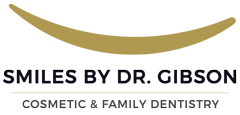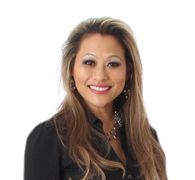When do I start to bring my child to the dentist for an appointment? When do they start getting teeth as infants? How many teeth will they have? When do children start brushing?
Parents of new babies will no doubt have several questions about the care of their child's teeth.
The tooth count
Baby teeth are called primary or deciduous teeth. They are the first set of teeth that form during the first trimester of pregnancy (first 12 weeks). Primary teeth start to erupt through the gum tissues at around 6 months. Every child will vary slightly on eruption timeframe. Usually the two upper and lower central teeth will be present by about 5 to 12 months. All 20 primary teeth are typically erupted by the time a child is about 3 years old. The baby teeth are all replaced with a total of 32 permanent teeth (which includes the wisdom teeth, or third molars).
All teeth that erupt in the mouth - whether they be baby teeth/primary teeth or adult teeth/permanent teeth - are different and perform different functions to help you eat. Incisors (front teeth - centrals and laterals) have sharp, thin edges for cutting food. Canines or cuspids (corner teeth) are designed for cutting and tearing teeth. Premolars or bicuspids (back teeth), which are only in the adult dentition, have cusps or points to grasp and tear food. Molars (back teeth) have short, blunt cusps for grinding solid food.
Having some knowledge as to when teeth erupt gives some parents comfort so they can prepare for when a child begins teething, or when to bring him to his first dental visit. Between 8 to 13 months, your child will have approximately six baby teeth (four upper-centrals and laterals and two lower-centrals). At about 13 to 19 months, a total of 12 baby teeth will be present (six teeth on both arches to include four centrals/laterals and two molars). When your child is 16 to 23 months old, approximately 16 baby teeth are present (on each arch there will be four centrals/laterals, two canines, two first molars).
As your child is 2 to 3 « years old, all 20 primary or baby teeth are present. Your child will start to lose his first tooth at around 6 to 8 years of age unless there is an accident or trauma that causes a tooth to be lost early. Each child will vary and should there be any concerns about your child's teeth, schedule an appointment with your dentist to have them evaluated.
Dental care
Just before new teeth start to come through in infants, teething occurs. You will generally notice some heavy drooling and red cheeks. Your baby may be gumming at everything. Chilled items such as a washcloth, teething rings or even a baby toothbrush can help ease the pain of the irritated gums. Even before teeth start to erupt or to become visible, it is also important to keep your baby's mouth clean. Introducing a soft infant toothbrush and rubbing it against the baby's gum and new teeth is a beginning. Do not use toothpaste for infants. Once your child turns 1 year old, you can introduce nonfluoridated children's toothpaste. When your child turns about 5 or 6 years old or when he learns how to spit, you can switch to fluoridated toothpastes. There are many types of brands of soft toothbrushes as well as brands and flavors of toothpastes, which may keep your child interested in brushing his teeth and cleaning his mouth.
Children may be afraid of dentists for many different reasons. Often it may be to a new environment with the strange-looking chairs and lighting, or to the sights and sounds of drills that can be scary. I recommend parents to schedule their routine dental visit and bring their child to see the dental setting and the care the parents go through. The American Association of Pediatric Dentistry recommends scheduling your child's first dental visit shortly after his first birthday. This is not a full examination or cleaning but an appointment that allows the dentist to introduce himself and attempt to count the number of teeth in your child's mouth. It is more an educational visit for both you and your child about future visits. Often, your child can have her teeth looked at while sitting on a parent's lap and tooth brushing can be demonstrated or discussed.
Don't forget the flossing as well. As we mention to all our adult patients to floss and brush daily, this also applies to your child's primary or mixed dentition (baby teeth and permanent teeth stage). Primary teeth are usually spaced out nicely. When your child has primary teeth that are very close together, I often recommend parents floss their children's teeth for them because of dexterity issues. I suggest that parents help with the routine flossing, as it can be difficult for your child in the beginning. There are flavored flosses out there that can interest your child to floss and at least to get them to place floss in their mouth. Ask your dentist or hygienist for pointers. Your child may be about 10 years old when flossing and brushing become routine. Flossing early and doing it regularly allow your child to develop good oral health-care habits.
There are many issues when it comes to your child's dental health and keeping on top of it is worth it.
Good habits now will fight off long-term oral health problems such as gum disease and cavities.






